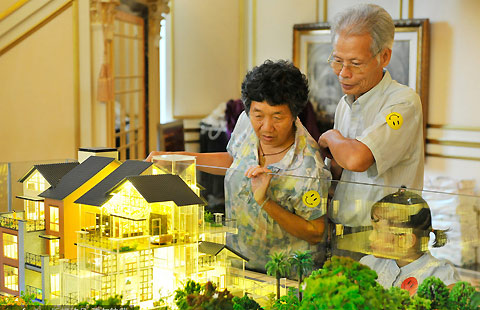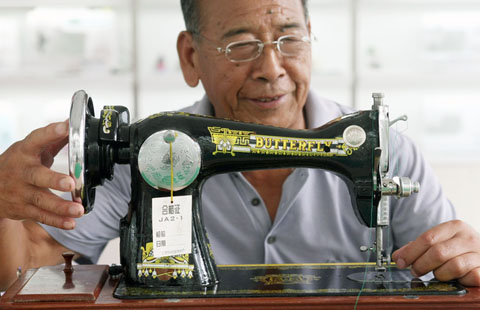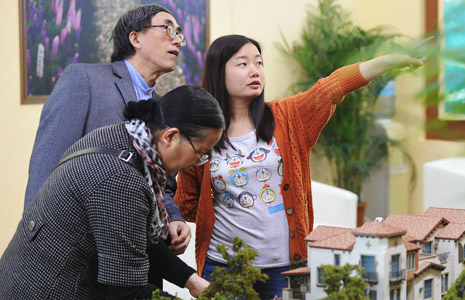Chinese property developers embrace 'new normal'
(Xinhua) Updated: 2014-08-09 16:33BOAO, Hainan - Gone are the days when Chinese property developers could make a killing simply by building more houses, so shrewd businesses faced with the current market spiral are tapping emerging markets to survive and even thrive.
In the first half of 2014, China's property investment growth slowed and new construction area and housing sales also fell. Meanwhile, it is evident that the market is fracturing, with most property developers suffering shrinking sales but industry giants such as China Vanke still performing strongly.
The new normal
"China's property market has outgrown its surefire get-rich-quick expansion period with a pervasive housing shortage. Now, it is heading into a new era when conscious Chinese demand more from property developers under stepped-up competition both from within and outside the housing sector," said Zhu Zhongyi, honorary vice chairman of the Chinese Real Estate Association, at the Boao Real Estate Forum on Friday.
"Despite a housing slump, the present market is the normal one, highlighting competition, innovation, focus and professionalism, alerting you to be always responsive to market changes," agreed Fan Gang, head of the National Economic Research Institute.
Property developers, large ones in particular, are glad to see the coming of what they regard as "the new normal." It used to be the case that bad money drove out good, as large developers focusing on providing quality and much-needed houses usually earned less than smaller ones which relied on rising housing prices.
"The past decade saw the establishment of an idiot-proof property market, one in which almost all market players could earn quick and handsome money by building houses," said Chen Aiming, CEO of Sincere Group, a large developer in southwestern China's Chongqing Municipality.
"The next one or two decades will indeed be the golden age for both property developers and home-buyers, when service-oriented endogenous growth will be the tone."
Demand won't go away
As a under-unbanized country, China unveiled a plan in March aiming to lift the urbanization rate to 60 percent by 2020, a blueprint that it is believed will unleash long-term home-buying demand.
Regional integration such as the Beijing-Tianjin-Hebei metropolitan economic circle will also contribute to long-term growth of the market. With China's urbanization drive progressing, Chinese property developers now have a new mission - to design and serve cities in an urbanized approach, said Liu Xiaoguang, CEO of Beijing Capital Group, a property conglomerate.
"Don't call us 'property developers.' We should try to be 'community designers,' offering comprehensive services to improve residence comfort," said Pan Jun, president and CEO of Fantasia Holdings Group, a pioneer and veteran in offering smart property management for self-sufficient communities.
Meanwhile, the second-hand property market is assuming more importance in China as home ownership surged in the past decade, according to Fan, who noted that this mirrors trends abroad.
Agent commission, promotion and accompanying services such as legal consultation can become a new cash cow for developers, he believes.
- Traditional media ad growth stalls
- Cereal imports soar but China remains comfortable
- China's 'silicon valley' to expand
- Anti-monopoly for Chinese consumers' rights: govt
- Non-resident yuan deposits reach 1.5t yuan
- Hard landing unlikely for China's property market
- China-ASEAN trade, investment has room to deepen
- China car probes aim for fair market: association














